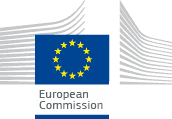



For more than a decade the audiovisual and live performance sectors have been experiencing radical changes. The globalisation of markets and audiences; the impact of the 2008 financial crisis on economies and access to finance; and, last but not least, the tremendous transformations brought about by digitisation have led large segments of our industry to have to adapt the way they work, transform their business models and sometimes drastically review the content of their offer.
In the audiovisual sector, broadcasting and film production have been greatly impacted by digitisation. The industry has had to adjust to new channels of distribution and to new modes of interaction with audiences. Screens of all shapes and forms have taken over our lives, driving a constant demand of innovative contents but also challenging the traditional business models of the industry.
In the live performance sector, the digital environment has transformed work processes at a slower pace. Still, digitalisation made its way through important segments of the sector’s operations such as audience development, ticketing, communication, etc. The digital environment has also opened new development routes (data-driven marketing, live streaming and other video recording models, etc.) and offered new perspectives in the creation field itself (digital art platforms, pieces specifically curated for the online environment, etc.).
Production and development models have been transformed but also the very structures of businesses and organisations. To develop a new offer in the digital world, explore new revenue streams or invent new ways to create and connect with audiences, the distribution of tasks within teams have had to be reconsidered and new roles emerged.
To stimulate innovation different types of skills are needed, to be adopted across the board of occupations and at different levels of the hierarchy of organisations.
To support the development of those skills in a sector composed in a large majority of small businesses and of a very high proportion of ‘independent’ workers (self-employed, freelancers, etc.), ‘non-traditional’ skills solutions are often the most efficient and the ones that can bring the most direct return on investment. Coaching, incubators, industry-led training schemes or R&D pilot actions are initiatives that help develop individual and collective skills but that also feed into the transformation dynamics of the sector.
The Career & Transfer Service Center (CTC) of the Berlin University of the Arts offers workshops, individual consultations and coaching to young artists in the first years of their careers. Co-financed through European Social Funds, all CTC’s activities are free of charge and open to students and alumni until five years after graduation from the four artistic universities in Berlin: the Berlin University of the Arts, the Berlin Weissensee School of Art, the “Hanns Eisler” School of Music Berlin and the “Ernst Busch” Academy of Dramatic Art.
Through workshops teaching the basics for freelance work, the CTC offers students the opportunity to combine their art and craftsmanship with legal, management, communication, and entrepreneurial skills. A coaching programme targeted at participants starting up a knowledge based or technology oriented business, as well as the Berlin Start-Up Scholarship and EXIST, a support programme of the German Federal Ministry for Economic Affairs and Energy, empowers arts students to further develop a project in an entrepreneurial way, and to develop their networks in the business environment.
To know more:
https://www.udk-berlin.de/en/service/career-transfer-service-center/
To multiply the impact of such actions UK companies decided to pool resources and develop a specific programme to develop the next generation of talent in their industry.
NextGen Skills Academy (or NextGen for short) was set up by the Government and the Games, Animation and VFX industries in 2014 in response to the NextGen Report, which highlighted skills shortages in the creative industries. To respond to the identified needs NextGen developed a new entry level qualification (Level 3 Diploma in Games, Animation and VFX Skills), as well as two new Apprenticeships Standards ready for use (Junior 2D Artist and Assistant Technical Director at Level 4).
To know more:
https://www.nextgenskillsacademy.com/
In France, representatives of the industry and of the education field meet annually in Angoulême at the occasion of the ‘Rencontres Animation Formation’. The objective of the encounter is to observe employment trends and technical and organisational evolutions, as well as to discuss R&D developments in French animation studios.
To know more:
https://www.rencontres-animation-formation.org/
The Royal Opera House (ROH) with its home theatre in Covent Garden, in the heart of London, is an iconic place of live performance artistic excellence.
For many years it has invested in digital innovations. It has developed a successful programme of productions relayed live in cinemas as well as an offer of live streaming on line. It has positioned itself strongly on the social media.
To broaden the potential of connections with this growing audience, extend opportunities for audiences to engage with the body of digital content, and explore new opportunities for revenues generation and the monetisation of digital content, the ROH worked on - with the support of the Digital R&D Fund for the Arts - a mobile app responding to the specific needs of live performance venues. The lessons learned while developing this app were shared with the broader sector and will hopefully feed in the broader ecosystem.
To know more:
http://static.roh.org.uk/digital/hybrid-app-project/pdfs/HybridApp-research-and-development-report.pdf
The ‘Digital R&D Fund for the Arts’, a partnership between NESTA, the Arts Council England and the Arts and Humanities Research Council (AHRC), encouraged collaboration between the arts, digital technology providers and the research community in order to undertake experiments from which the wider arts sector could learn. £7 million were made available for projects over the period 2012-2015. Free resources were created as part of the programme.
To know more:
https://www.nesta.org.uk/project/digital-rd-fund-for-the-arts/
Public broadcasters, like other stakeholders in the audiovisual sector, have been put under pressure by the combination of new technologies, new demands from the audience and a challenging economic context. This has pushed many of them to rethink their production processes and to position themselves as facilitators for innovation within the broader creative ecosystem.
In Belgium, VRT Sandbox matches startups, SME’s and entrepreneurs to the national public-service broadcaster for the Flemish Region and Community (VRT) for a short-term collaboration. Selected projects receive the opportunity to scale and/or develop their products (both content and technology wise) for short periods of time, with access to VRT’s infrastructure and technological resources. At the end of the project, partners demonstrate their learnings and insights at the VRT Sandbox sessions.
To know more:
http://sandbox.vrt.be/
The EBU-led “MediaRoad: European Media Ecosystem for Innovation” project promises to help Europe’s media sector update the way it approaches innovation by strengthening collaboration between broadcasters and start-ups and by developing a network spanning across the creative sector to shape future research and innovation priorities.
To know more:
https://www.mediaroad.eu/
As part of the BBC’s Research and Development department, through participatory programmes and events, the BBC Connected Studio facilitates the production of innovative digital pilots which are then tested on an audience-facing platform, BBC Taster. On this platform the audience can try, rate and share the new ideas from the BBC and its partner.
The BBC Academy’s Digital Cities project, commissioned annually by ScreenSkills and the Television Skills Fund, aims at developing the very latest skills and also the networking opportunities needed for both the current and next generation of content makers. It delivers in partnership with relevant stakeholders training of significant scale in major cities across the UK. It reaches an average of seven thousand people each year.
To know more:
https://www.bbc.co.uk/academy/en
http://www.bbc.co.uk/connectedstudio/
https://www.bbc.co.uk/taster/
The operational environment of the audiovisual and live performance sectors is complex and evolves at a very fast pace. To thrive creative businesses need to respond to and anticipate technological developments; they need to constantly innovate, to be in phase with the demands of the audience, and they have to identify, along the way, the business models that will make their activities sustainable economically in the long-term.
A variety of skills sets are therefore to be acquired not only by the management team to overview and steer the process but also by all other members of staff to drive innovation and implement new products and processes.
To allow for the emergence of new business and organisational models, companies need to think transversally and out-of-the box. They have to attract and nurture the right technical and digital skills but they also have to offer opportunities to all staff and partners to engage.
Transformations can be piloted by the head of an organisation but they can also be driven on a project-basis with the involvement of more colleagues
Transformations present an opportunity to rethink traditional ways of working and to develop new skills across the board of an organisation.
In booming subsectors of the industry, where businesses have the means to invest in dedicated schemes, skills development can be implemented in-house, in partnership with education and training bodies or through peer-to-peer programmes. To multiply the impact of such investments, or when in-house resources are too scarce, business-to-business partnerships or sector-level schemes can be set up; combining multiple streams of funding and offering relevant training solutions responding to the demands on the ground. Getting funding from institutions to pilot new ideas and then sharing the outcomes of those projects to the broader sector is a way to acquire new skills and new tools in-house, while reinforcing the general growth dynamics in our field. Supporting start-ups and creating new links between a company and the broader ecosystem is another way to support transformations and to reinforce digital and innovation skills across the sector.
To innovate in our sectors, artistic and creative skills have to be coupled to an understanding of the digital and business trends affecting our activities and to a capacity to shape and anticipate further developments.
Innovation in the creative industries, on the other hand, emerges from original ideas and from a combination of talent, technical know-how and skills that will lead to the development of business and organisational models that are original and sustainable.
The acquisition of management, businesses and entrepreneurial skills is therefore key in the cultural and creative industries and should be promoted in initial and continuous education.
Universities and arts schools should offer their students the possibility to develop their artistic potential through concrete projects. They should offer them support systems to test their ideas and help them acquire the skills that will allow them to integrate and make connections in the creative ecosystem.
Targeted programs should also offer professionals from the creative industries – in all types of occupations – opportunity to diversify their skills and pilot new projects, so that innovation could come from all fields of the industry and distil innovation all along the creative chain.
The future of the audiovisual and live performance industries will be written in a digital era. The digital transformations will keep their rapid pace and the creative and cultural industries should help shape them.
To empower the sector in this new environment, the skills of the professionals within the industry must be reinforced but new projects should also be launched and new partnerships established.
Research & Development, support to start-ups, partnerships with science and engineering schools, pilot projects that test new ways of working are all relevant tools to establish new partnerships and attract new skills to our sectors.
 Publication prepared in 2019 in the context of a project which received support from the European Commission. This publication reflects the views of the authors only and the Commission cannot be held responsible for any use which may be made of the information contained therein.
Publication prepared in 2019 in the context of a project which received support from the European Commission. This publication reflects the views of the authors only and the Commission cannot be held responsible for any use which may be made of the information contained therein.